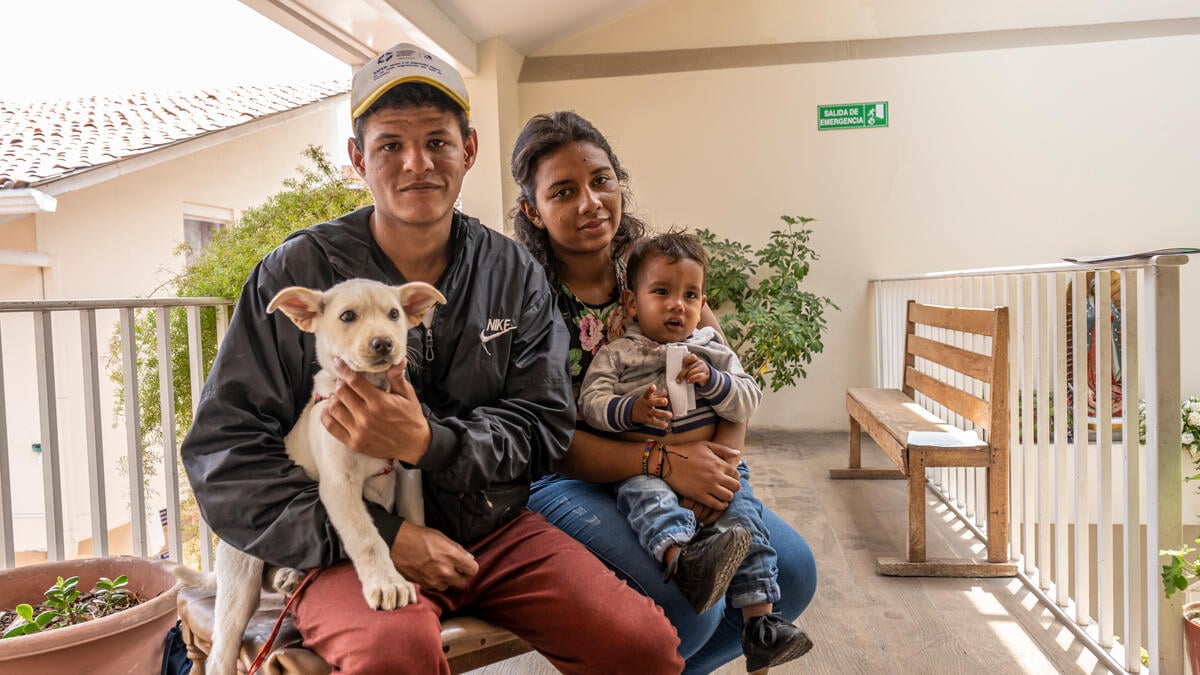Refugees marooned at Pakistan border receive food aid
Refugees marooned at Pakistan border receive food aid

CHAMAN, Pakistan, June 11, (UNHCR) - Thousands of Afghan refugees waiting for as long as four months just inside Pakistan's frontier with southern Afghanistan are receiving food aid ahead of a U.N. refugee agency (UNHCR) initiative to count the new arrivals.
Aid workers began distributing ten days-worth of World Food Programme (WFP) food aid consisting of wheat flour, pulses and vegetable oil, along with rice donated by the governments to Malaysia and Libya, on Monday to the more than 25,000 refugees living in a makeshift camp outside the dusty border town. The food distribution is expected to take several days. Chaman's marooned refugees last received a month's rations in early May.
"Once this distribution is completed and we have a better idea of how many Afghans are at the site, we plan to distribute a full month's food ration," UNHCR spokesman Kris Janowski said.
While most of Chaman's refugees hope to be formally allowed into Pakistan, UNHCR continues to help willing Afghans return. Thirty-nine families left the makeshift camp for home last week with travel assistance and family kits from the U.N. refugee agency.
Since UNHCR started its assisted repatriation programme with the Interim Authority last March, more than 94,000 Afghans have returned from Pakistan's Baluchistan Province. A lack of food aid means that for the time being, Afghans opting to return to southern Afghanistan receive vouchers they can later redeem for 150 kilogrammes of WFP wheat flour once stocks become available.
In the wake of the U.S.-led attack on the Taliban, the U.N. refugee agency got the go-ahead to establish eight new camps in the region, sheltering more than 156,000 refugees. Afghans fleeing fighting and the serious drought that has decimated livestock and left crops to wither across southern Afghanistan began arriving at Chaman late last year.
Beginning in late December 2001, some Afghans reaching the border reported ethnic violence against Pashtuns in the weeks following the fall of the Taliban. UNHCR alerted the Kabul authorities, and the Interim Authority took measures to rein in armed elements who were blamed for the attacks.
But Pakistan firmly closed the Chaman crossing in February and refused UNHCR permission to register the more than 25,000 Afghans waiting at the edge of the agency's Killi Faizo transit camp.
"Conditions at Chaman's makeshift site have been unacceptable for some months, though recently we've made some improvements," Janowski said.
Relief agencies have built 300 latrines for the new arrivals, and added six water tanks to ensure that each Afghan gets at least 12 litres a day. Health care services are provided, and malnourished refugees have special feeding programmes.
The summer heat at the border site is the refugees' worst enemy, aid workers say. Along with the food aid, UNHCR is distributing plastic tarpaulins and poles so refugees can shade their primitive shelters from the tropical sun.
Overall, more than 942,000 Afghans have returned home since March under the U.N. refugee agency / Afghan Interim Authority programme. UNHCR has warned that a funding crisis affecting relief agencies operating in the region may see it run out of money by the end of June unless new contributions arrive. It has so far only received 67 percent of its $271 million budget.









